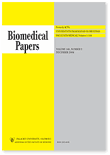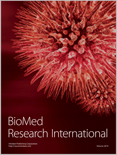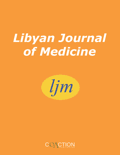
BMC Research Notes
Scope & Guideline
Advancing Scientific Dialogue with Every Note
Introduction
Aims and Scopes
- Interdisciplinary Research:
The journal encourages submissions that span multiple scientific disciplines, promoting interdisciplinary collaboration and the integration of diverse methodologies. - Rapid Communication of Findings:
BMC Research Notes prioritizes the swift publication of research findings, making it an attractive venue for researchers wishing to share preliminary data, pilot studies, and innovative methodologies. - Methodological Innovations:
The journal highlights the development and application of new research methodologies, including advanced statistical analyses, novel experimental techniques, and innovative data collection strategies. - Health and Biomedical Research:
A significant portion of the published research focuses on health and biomedical topics, addressing pressing health issues and contributing to public health knowledge. - Datasets and Data Notes:
BMC Research Notes features papers that provide valuable datasets, enabling other researchers to conduct further analyses and replicate studies. - Community Engagement and Social Impact:
Research that engages with community health issues, social determinants of health, and public health interventions is a strong focus, reflecting the journal's commitment to societal impact.
Trending and Emerging
- Digital Health and Telemedicine:
With the rise of telehealth, there is an increasing number of studies focusing on digital health interventions, particularly in the context of COVID-19 and the need for remote patient care. - Interdisciplinary Approaches:
The trend towards interdisciplinary research is growing, with collaborations across fields such as data science, social sciences, and health, leading to innovative solutions for complex problems. - Socioeconomic Determinants of Health:
Research exploring the impact of socioeconomic factors on health outcomes is gaining prominence, reflecting a broader recognition of the social determinants of health. - Environmental Health and Climate Change:
Studies addressing the health impacts of climate change and environmental factors are on the rise, indicating an increased awareness of the interconnectedness of health and the environment. - Personalized Medicine and Genomics:
There's a growing interest in personalized medicine, particularly in relation to genetic research and its applications in treatment strategies, as well as understanding individual responses to therapies. - Mental Health and Well-being:
Research focusing on mental health, particularly in the wake of the COVID-19 pandemic, is trending, highlighting the importance of mental well-being in overall health.
Declining or Waning
- Traditional Laboratory Techniques:
There has been a noticeable decrease in publications centered around traditional laboratory techniques as more researchers gravitate towards computational and bioinformatics methodologies. - Single-Disease Focus Studies:
Research that isolates a single disease without considering comorbidities or broader health contexts is becoming less prevalent, as interdisciplinary approaches gain traction. - Localized Research:
There is a waning interest in studies focusing solely on localized or regional health issues without broader implications, as global health perspectives are increasingly emphasized. - Static Data Reporting:
Papers that solely report static data without accompanying analyses or discussions on implications are less frequently published, shifting towards more dynamic and integrative research. - Basic Science with Limited Application:
Research that lacks immediate applicability to clinical or public health settings is seeing a decline, as the journal seeks studies that address real-world challenges.
Similar Journals

BIOMEDICAL PAPERS-OLOMOUC
Exploring the forefront of biomedicine from Olomouc.BIOMEDICAL PAPERS-OLOMOUC, published by Palacky University Medical Faculty, is a prominent open-access journal dedicated to advancing the fields of biochemistry, genetics, molecular biology, and general medicine. Since its inception in 2001, this journal has provided a vital platform for researchers, professionals, and students alike, fostering a collaborative environment for the dissemination of cutting-edge research findings. With a current impact factor reflected in its placement in the Q3 quartiles for both biochemistry and medicine categories, it demonstrates a growing influence in the academic community. The journal is indexed in Scopus, showcasing its relevance within the medical and biophysical sciences, and it operates in an open-access format to ensure broad accessibility of its articles. Set against the backdrop of Olomouc, Czech Republic, BIOMEDICAL PAPERS-OLOMOUC continues to contribute significantly to the global dialogue in biomedical research, making it an essential resource for anyone engaged in these dynamic and rapidly evolving fields.

JOURNAL OF BIOMEDICAL SCIENCE
Advancing knowledge in biomedical science for a healthier tomorrow.JOURNAL OF BIOMEDICAL SCIENCE, published by BMC, is a premier Open Access journal dedicated to the rapid dissemination of research in the fields of biomedical science, encompassing crucial areas such as biochemistry, cell biology, clinical biochemistry, and more. Since its inception in 1993, the journal has established itself as a leading publication, currently boasting a remarkable impact factor and quality as evidenced by its Q1 quartile rankings across multiple categories in 2023. With an impressive track record, including a Scopus ranking in the top percentiles across several disciplines, it serves as a vital resource for researchers, professionals, and students who are keen on advancing their knowledge in biomedicine. The journal operates under a fully Open Access model, ensuring that all published articles are freely available to the global research community, thus contributing to the broader dissemination and accessibility of scientific knowledge. Based in the United Kingdom, JOURNAL OF BIOMEDICAL SCIENCE is committed to fostering innovation and collaboration in research, appealing to those aiming to make impactful contributions to the biomedical sphere.

AIMS Molecular Science
Pioneering Open Access in Molecular ScienceAIMS Molecular Science is a premier open-access journal published by the American Institute of Mathematical Sciences (AIMS), dedicated to the advancement and dissemination of high-quality research in the field of molecular science. Since its inception in 2014, this journal has established itself as a vital platform for researchers and professionals aiming to share their findings in molecular biology, chemistry, and interdisciplinary studies related to these domains. With an increasing focus on the accessibility of scientific knowledge, AIMS Molecular Science supports the open-access movement, ensuring that all published articles are freely available to the global research community. The journal emphasizes originality and significance in research, promoting innovative scientific methodologies and applications. By fostering collaboration and dialogue among scientists, AIMS Molecular Science plays a crucial role in advancing understanding and stimulating progress in molecular sciences.

Biomed Research International
Pioneering interdisciplinary research in health and disease.Biomed Research International is a prominent open access journal published by HINDAWI LTD, dedicated to advancing the field of biomedical research. With its ISSN 2314-6133 and E-ISSN 2314-6141, this journal has been a significant contributor to the scientific community since its inception in 2013, making scholarly work accessible to a global audience. The journal's scope encompasses a range of disciplines, including biochemistry, genetics, molecular biology, immunology, microbiology, and medicine, reflecting its commitment to interdisciplinary research. Ranked in the Q2 quartile as of 2023 across several relevant categories, Biomed Research International is recognized for its high-quality publications that foster innovation and collaboration in biomedical studies. Researchers, professionals, and students looking to share and gain insights into cutting-edge biomedical discoveries will find this journal an essential resource. With a focus on rapid dissemination of research findings, the journal serves as a vital platform for academics to engage with contemporary issues in health and disease, ultimately contributing to the advancement of medical science.

PLOS BIOLOGY
Fostering Collaboration in the Heart of BiologyPLOS BIOLOGY, published by PUBLIC LIBRARY SCIENCE, is a leading open-access journal that has been at the forefront of biological research since its inception in 2003. This high-impact journal (with an impressive Scopus ranking placing it in the top 10% across multiple biological disciplines) aims to disseminate groundbreaking research findings in a variety of fields, including Biochemistry, Genetics, Molecular Biology, Immunology, Microbiology, and Neuroscience. With a commitment to open-access principles, PLOS BIOLOGY ensures that its content is freely available to a global audience, fostering collaboration and innovation among researchers, professionals, and students worldwide. Its Q1 quartile status in 2023 highlights the journal's prestigious standing within the academic community, making it an essential resource for those seeking to stay updated with the latest advancements in biological sciences. The journal's scope extends from 2003 to 2024, reflecting its sustained relevance and impact in driving forward biological discoveries.

Methods and Protocols
Unlocking the potential of biochemistry and biotechnology.Methods and Protocols is a prestigious open-access journal published by MDPI, focusing on the critical domain of biochemistry, genetics, molecular biology, and biotechnology. Launched in 2018 and based in Basel, Switzerland, the journal provides a vital platform for sharing innovative methodologies and experimental protocols that advance scientific research and development. With an impressive Q2 ranking in multiple categories, including Biochemistry, Genetics and Molecular Biology, and Biotechnology, it fosters a collaborative environment for researchers and professionals to disseminate their findings. With a mission to enhance reproducibility and transparency in scientific inquiry, Methods and Protocols not only serves as an essential resource for academia but also contributes to the practical application of research in various industries. The journal's open-access model ensures that cutting-edge research is accessible to a global audience, thus promoting knowledge sharing and inspiring future innovations within the scientific community.

STAR Protocols
Elevating Research Standards Through Open AccessSTAR Protocols, published by Elsevier, is an esteemed open access journal that has been at the forefront of providing innovative experimental protocols since its inception in 2020. With a distinct focus on a range of scientific disciplines including Biochemistry, Genetics and Molecular Biology, Immunology and Microbiology, and Neuroscience, this journal serves as a vital resource for researchers, professionals, and students alike. The journal holds a commendable status, reflected by its Q1 and Q2 rankings across various relevant categories, ensuring the dissemination of high-impact research methods and findings. With its open access format, STAR Protocols encourages a broad readership and facilitates the sharing of pivotal knowledge in the scientific community, driving forward the culture of transparency and collaboration in research. Positioned in the vibrant academic landscape of the United States, it steadily contributes to the evolution of experimental methodologies, fostering innovation across disciplines.

Advances in Clinical and Experimental Medicine
Advancing Knowledge, Transforming LivesWelcome to Advances in Clinical and Experimental Medicine, an esteemed publication by WROCLAW MEDICAL UNIVERSITY, dedicated to advancing the essential fields of clinical and experimental medicine. With an open access model since 2017, this journal ensures that researchers, healthcare professionals, and students worldwide can freely access high-quality scientific content. Covering a broad spectrum of topics including biochemistry, genetics, internal medicine, and pharmacology, Advances in Clinical and Experimental Medicine has established itself as a pivotal resource in the scientific community, currently holding prestigious rankings such as Q2 in Biochemistry, Genetics, and Molecular Biology (miscellaneous) and Q1 in Reviews and References (medical) for 2023. Spanning over two decades of rigorous research publication, the journal is a critical platform for sharing innovative findings and fostering collaboration among scholars, making it an invaluable asset for those at the forefront of medical science.

CienciaUat
Empowering discovery and dialogue in science and technology.CienciaUat is a distinguished academic journal published by the Universidad Autónoma de Tamaulipas, dedicated to fostering innovative research across various scientific disciplines. With an ISSN of 2007-7521 and an E-ISSN of 2007-7858, this journal serves as a platform for the dissemination of high-quality research findings that contribute to the advancement of science and technology within both local and international contexts. The journal aims to promote scholarly communication among researchers, professionals, and students, emphasizing the importance of empirical evidence and interdisciplinary approaches. Though specific metrics like H-Index and Scopus rankings are currently not provided, CienciaUat is committed to maintaining rigorous peer-review standards. The journal’s open-access model facilitates wide accessibility, ensuring that pivotal research reaches a global audience. The editorial team encourages submissions that adhere to the highest academic standards, reflecting innovation and relevance in today’s scientific landscape.

Libyan Journal of Medicine
Advancing Mediterranean health through impactful research.Libyan Journal of Medicine, published by TAYLOR & FRANCIS LTD, is a prominent open-access journal dedicated to advancing the field of medicine, particularly within the context of Libyan and broader Mediterranean health challenges. Since its inception in 2006, the journal has facilitated the dissemination of vital research findings, offering unrestricted access to its rich repository of knowledge, which enhances visibility and accessibility for researchers, clinicians, and students alike. Ranking in the Q3 category within the Medicine (miscellaneous) sector for 2023, and positioned at Rank #147 out of 636 in the general medicine category on Scopus, it reflects a notable recognition for its contributions to medical research. The journal aims not only to publish high-quality articles that span a variety of medical disciplines but also to foster collaboration and communication among the international medical community. As it converges its focus from 2009 to 2024, the Libyan Journal of Medicine serves as an invaluable resource for cutting-edge research and innovative medical practices.